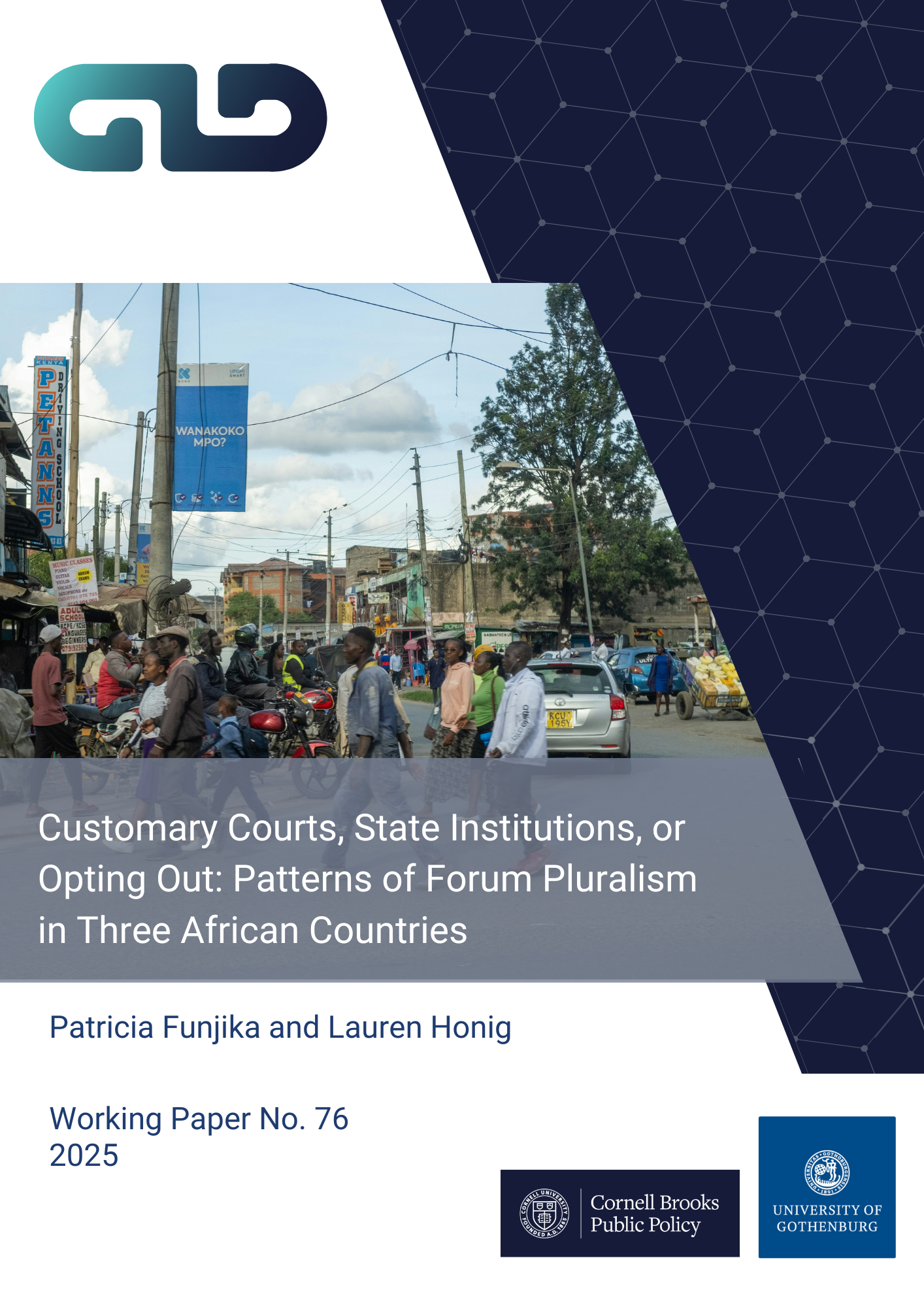No.76 Customary Courts, State Institutions, or Opting Out: Patterns of Forum Pluralism in Three African Countries
Patricia Funjika and Lauren Honig
Abstract
Human security and economic development require access to conflict resolution forums, making them a critical governance service. Yet, state governments are not the majority provider of dispute resolution in many countries. We draw on a sample of 5,000 disputes from the 2019 Local Governance Process Indicators (LGPI) survey to study the impacts of forum pluralism in peri-urban and rural Zambia, Malawi, and Kenya. Contrary to expectations that customary forums substitute for the state, we show that the greater multiplicity of forums in a community is associated with increased use of dispute resolution services. However, status within customary and state forums also has a significant impact on forum choice and, therefore, which norms of justice govern individual citizens. We also find certain groups, particularly women and individuals with low status in customary forums, are less likely to seek any dispute resolution. Proximity to the state’s courts consistently impacts the likelihood of using them, highlighting the importance of ease of access on forum choice. Overall, the findings show that, even as the prevalence of customary forums increases access to a vital governance service, policymakers must pay careful attention to which groups remain under-served and excluded from equal access to conflict resolution.
KeyWords: Dispute Resolution, Conflict Resolution, Africa, Chiefs, Local Government, Forum Shopping
